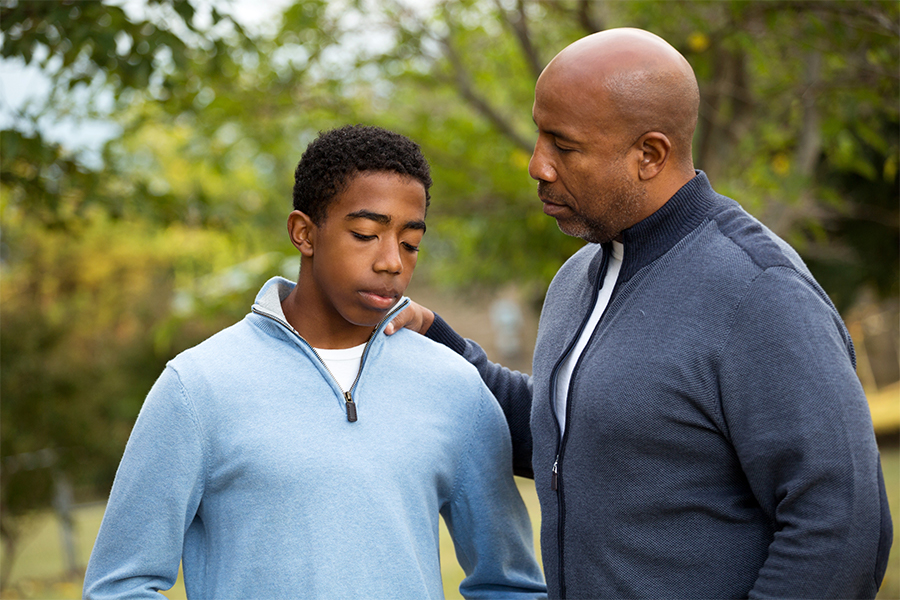May is Mental Health Awareness Month and as part of VEBA’s commitment to good mental health practices, we’re looking at how parents can support their teenagers. Being a teenager and surviving all the changes it brings can be overwhelming, especially with the uncertainties and additional fears brought on by a pandemic.
The American Psychological Association suggests that parents be ready to respond and/or prepare to approach their teen directly.
When your teen approaches you:
- Stay Calm – listen to what they say without reacting.
- Understand – it may have been difficult for your teen to start this conversation.
- Validate – make sure you don’t minimize or brush off your teen’s feelings.
- Break – if the conversation gets emotional, take a break.
When you, the parent, initiate the conversation:
- Take the time to prepare for the conversation and think about what is important to say.
- Choose a good time to talk.
- Communicate your thoughts and feelings clearly, using “I” statements to express any concerns you have.
- Reassure your teen that there is help available from people like psychologists and other mental health professionals and that you can help them access that care.
- Tell your teen that asking for help is a sign of courage and strength, not weakness.
- Stay focused on your goal. Remember to listen.
- Ask clarifying questions. Don’t assume you understand everything they’re experiencing.
- Reach out to your teen’s teachers or other school staff for resources and support.
Better understanding between you and your teen can relieve stress when things are difficult. And a good relationship may help your teen avoid feelings of loneliness, helplessness, or hopelessness.
Connection is key to helping teens and parents understand one another. The CDC says, “Building strong bonds and relationships with adults and friends at school, at home, and in the community provides youth with a sense of connectedness.” Some ways to boost connectedness include:
- Spending time with your teenager, enjoying shared activities.
- Becoming engaged in their school activities and helping with homework.
- Volunteering at your teen’s school.
The VRC has put together a list of local and national resources to help.









